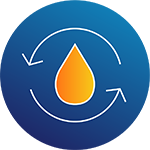
Science Journalism
Making the Complex Understandable
The rapidly changing scientific, medical and technical landscape requires the skills of a special type of journalist who can both understand and explain these changes to the general population. Science journalists take complicated concepts, interpret them, and communicate them in a manner that is more easily understood by those of us who do not have a technical or science background. In this time of deadly pandemics, climate change, and species extinction, science journalism plays a vital role in bringing important stories to the attention of the general public. And even though the very existence of scientific fact has become a weapon in some of the more contentious social, political, and environmental debates of the day, science journalists are professionals committed to providing essential information in an unbiased manner.
Science journalism should not, however, be confused with scientific writing. Scientific writers are primarily scientists who write research articles for an audience of their peers and are published in specialized periodicals like the Journal of Marine Chemistry. Science journalists write about science issues critically and are published in general circulation magazines like National Geographic as well as in newspapers like the New York Times. While there may be some overlap, the role of the science journalist is not only to explain the results of scientific studies to a wider audience but also to help “distinguish between well-supported and weak conclusions and examine possible conflicts of interest on the part of the scientists.”[1]
A Degree in Science or a Degree in Journalism?
There has been an ongoing debate in the journalism profession over which type of university degree makes for a “true” science journalist. While we certainly appreciate the specialized nature of science journalism, it should be noted that no one ever requires a crime reporter to be a criminologist or a sports reporter to have won an Olympic gold medal. As with most things, there are advantages and drawbacks to each route. For example, someone with a deep background in molecular biology may have the technical knowledge required for understanding a scientific breakthrough in biotechnology, but someone without that same background may be able to relate the story to a non-scientific audience better because they too must first understand the science behind the breakthrough.
Being neither scientists nor journalists, but rather students facing future career choices, we think the debate is a bit nonsensical. It seems obvious that having a mix of the two skill sets would be the wisest course of action. Lacking a formal educational background in one area should not preclude you from pursuing science journalism if that is your interest. After all, with so many online courses, webinars, books, and subject matter websites available, you can learn about any subject outside of the typical school setting. If it were otherwise, every science journalist would have had to commit to a science-oriented academic career path as an undergraduate student and many students may just not be prepared to do that.
Journalistic Resources
While most of the resources we have provided in this particular snapshot are geared toward the general field of journalism, the Ocean Connect website certainly has lots of science-related resources which you can access. But more to the point, while having a science background can only be to your advantage, trying to master all possible areas of science during high school and college is just not feasible. And how would you even know what area of science you will end up writing about? The years and years you spent learning about biology are not going to help much when you have to write about an asteroid heading directly for Earth.
That’s why we think it is better to pursue a journalism degree because you will learn a style of writing which can translate to any scientific, technical, or medical subject. Besides, there are plenty of professions other than science journalism that have to master specific scientific or technical areas to perform their jobs. For example, an attorney who has to litigate a case involving cancers caused by asbestos did not learn about mesothelioma in law school. They did, however, learn a way of thinking that allows them to handle these science-intensive cases. A degree in journalism will not only enable you to do much the same thing, but it will also allow you to pursue other areas of journalism if you so choose. Of course, we are not trying to dissuade anyone who opts to go the science route, as we are all for choosing your own path. We are just offering our opinion as to which route gives you the most options and, therefore, is in the long-run, more practical.
…
Citations
1. On good science journalism: Why it’s important and how to produce it. Science Borealis.

The Path to Becoming a Science Journalist
From High School to Your First Job
Build a Solid Academic Foundation
Basics:
Take all available STEM-related classes (biology, physics, chemistry, computer science, mathematics) offered at your high school. Take journalism and all other kinds of writing classes (fiction, nonfiction, and even poetry). This will help you build your knowledge and learn to express that knowledge.
Recommended:
If not available at your high school, take journalism classes online or at your local community college. If you are interested in a particular area of science, try and find online or local classes that can further your knowledge in that particular area. Write for your school newspaper or magazine.
Keep in Mind:
Scientific journalism is first and foremost about writing style so learn how to write for a non-scientific audience. The ability to communicate complex concepts to a general audience is essential for a career in science journalism. Intern at your local newspaper to learn basic journalistic practices.
Dive In!
And become an expert
![]()
Peruse our library of must-read books
![]()
Thumb through a scientific publication
Take an online course
![]()
Watch an interesting video
![]()
Check out these great websites
Get a

jump on your Academic career
There’s no substitute for experience.
We have compiled a database of thousands of internships, research opportunities, academic programs and specialized training programs so you can get a jump on your academic career.
Internships
Research
Academic Training Programs
And if you need support to fulfill your dreams and ambitions, our searchable database has plenty of scholarship opportunities as well as programs designed to increase diversity.
Scholarships
Diversity, Equity & Inclusion
Need Help Finding Your Opportunity?
Our video tutorials explain the ins and outs of landing a great internship, research project or training program.
Make all the right moves
Advice from those who know
Maintain an excellent GPA
Work at your school newspaper
Participate in at least one science-related internship
Intern at a general circulation science magazine
Establish strong connections with editors, your professors, and other professionals
Take advantage of workshops and courses
Enter science journalism competitions
Develop a portfolio of your work
Join professional societies and organizations
Stay current by reading industry publications
Learn about current research projects
What degree is right for you?

Undergraduate
Most employers require a bachelor’s degree, preferably in communications, journalism, writing, or a related field. Undergraduate programs cover general journalism and not specifically science journalism although such courses may be offered. Take a range of science-related courses. Take classes in science writing, science communications, law, and ethics. With an increased focus on digital media, find a course in multimedia news reporting.
Graduate
A master’s degree is recommended as this is where you will be able to specialize your studies in science journalism. At the graduate level you will be able to go more in-depth on investigative and research techniques, journalistic writing techniques, and media and science ethics. A master’s degree will also open up more and better quality employment opportunities. A doctoral degree is only necessary if you want to pursue a career in academia.
10 Schools With Excellent Science Journalism Programs
Want to see the full list of colleges and universities with degree offerings or relevant courses?
Science Journalism (Master’s)
Boston University
Science Journalism (Master’s)
Columbia Journalism School
Science Writing (Master’s)
Massachusetts Institute of Technology
Science Communication (Master’s)
UC Santa Cruz
Science and Environmental Writing Program
Lehigh University
Journalism
University of Southern California
Journalism
University of Wisconsin – Madison
Journalism
University of Georgia
Journalism
Michigan State University
Journalism
Ohio State University
![]()
Tip 1
Most universities do not offer a specific science journalism major or even as a minor. Learn the basics of journalism and find a professor who has an interest or expertise in science journalism and adopt them as your mentor.
![]()
Tip 2
If you do not pursue a science background academically it is still important that you understand scientific processes and standards. Science journalism requires the same accuracy and precision as scientific writing.
![]()
Tip 3
The most valuable asset in journalism is experience. You should establish your own portfolio of science articles to show future employers or graduate school admission committees by creating your own blog or website.
Have familiarity with one or more of the following areas

Journalistic ethics

Environmental chemistry

Science communication

Planetary sciences

Big data

Business and economics

Investigative techniques

Research

Biological sciences

Conservation science
Typical Job Functions of a Science Journalist
Here are some of the interesting things you could be doing.
Reviewing journals, scientific papers, and reports for scientific discoveries.
Researching the validity of scientific breakthroughs.
Establishing a network of industry experts.
Interviewing scientist sources for stories.
Visiting scientific research establishments.
Unraveling complex scientific concepts for general consumption.
Writing stories about important scientific events.
Editing scientific news, articles, and features.
Broadcasting science stories on TV and radio.
There’s an Ocean of Possibilities
If you want to pursue a career that is both challenging and rewarding, science journalism is an excellent option. And with all the serious environmental, medical, and climate issues confronting our planet, science journalism is also an extremely relevant and important career.
Common employers include:
- Newspapers
- Magazines
- Journals
- Special Interest Publications
- Television Stations
- Radio Stations
- New Organizations
- Digital Media Companies
- Social Media Companies
- Public Broadcasting Systems
- Online Journals
- Technology Companies
- Nonprofit Organizations
- Non-governmental Organizations
- Universities
Start your career search with our extensive list of employment websites.
